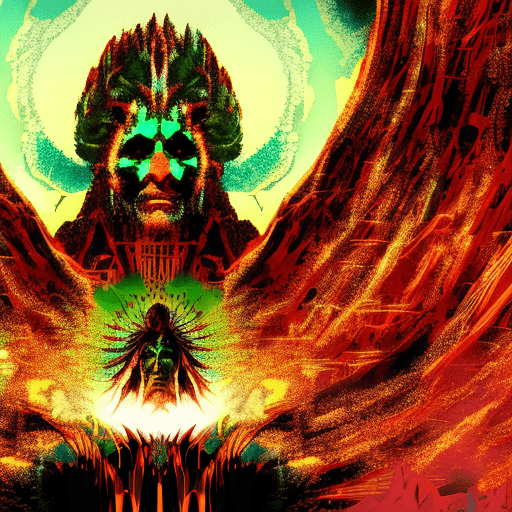One-line summary:
American Gods is a captivating novel that explores the clash between old and new gods in America, following the journey of ex-convict Shadow Moon as he becomes embroiled in a battle for power and belief.
Shadow Moon’s Journey:
American Gods, written by Neil Gaiman, takes readers on a mesmerizing journey through a world where ancient gods and mythical creatures coexist with modern society. The story revolves around Shadow Moon, a recently released convict who finds himself caught in the middle of a war between the old gods of mythology and the new gods of technology and media.
As Shadow embarks on a road trip across America, he encounters a cast of eccentric characters, both human and divine. He becomes the bodyguard and right-hand man of the enigmatic Mr. Wednesday, who is revealed to be the Norse god Odin in disguise. Together, they recruit old gods from various mythologies to fight against the new gods who seek to diminish their power.
Throughout his journey, Shadow encounters a diverse array of gods, including Anansi, the African spider trickster god, Czernobog, the Slavic god of darkness, and Easter, the goddess of spring. Each encounter reveals the struggles and vulnerabilities of these ancient deities as they adapt to the changing world and the waning belief of their followers.
The Clash of Old and New:
Gaiman skillfully weaves together themes of mythology, religion, and contemporary American culture in American Gods. The clash between the old gods and the new gods serves as a metaphor for the changing landscape of belief and the erosion of traditional values in modern society.
The old gods, who represent the beliefs and traditions of various cultures, find themselves marginalized and forgotten as people turn to new forms of worship, such as technology, media, and celebrity. Gaiman explores the idea that belief is a powerful force that shapes reality, and as people lose faith in the old gods, their power diminishes.
On the other hand, the new gods, personifications of technology and media, are depicted as ruthless and manipulative. They seek to control and exploit humanity’s desires and obsessions, using their influence to gain power and followers. Gaiman raises thought-provoking questions about the nature of worship and the consequences of blindly embracing new ideologies.
A Tale of Identity and Belonging:
At its core, American Gods is a story about identity and belonging. Shadow Moon, as an ex-convict, is searching for meaning and purpose in his life. His encounters with the gods force him to confront his own beliefs and question his place in the world.
As Shadow navigates the treacherous landscape of gods and monsters, he grapples with his own past and the choices that have led him to this point. Through his journey, he learns about the power of belief, the importance of forging connections with others, and the strength that comes from embracing one’s true self.
Key Takeaways:
- Belief shapes reality: The power of belief is a central theme in the novel, highlighting how faith can shape the world around us.
- The clash of old and new: American Gods explores the tension between tradition and progress, as ancient deities struggle to survive in a rapidly changing society.
- Identity and self-discovery: Shadow Moon’s journey serves as a metaphor for the search for identity and purpose, reminding us of the importance of self-reflection and embracing our true selves.
“Gods die. And when they truly die they are unmourned and unremembered. Ideas are more difficult to kill than people, but they can be killed, in the end.”
American Gods is a captivating and thought-provoking novel that delves into the complexities of belief, identity, and the clash between tradition and progress. Gaiman’s masterful storytelling and rich mythology make for an immersive reading experience that leaves readers pondering the power of faith and the ever-changing nature of the world around us.












